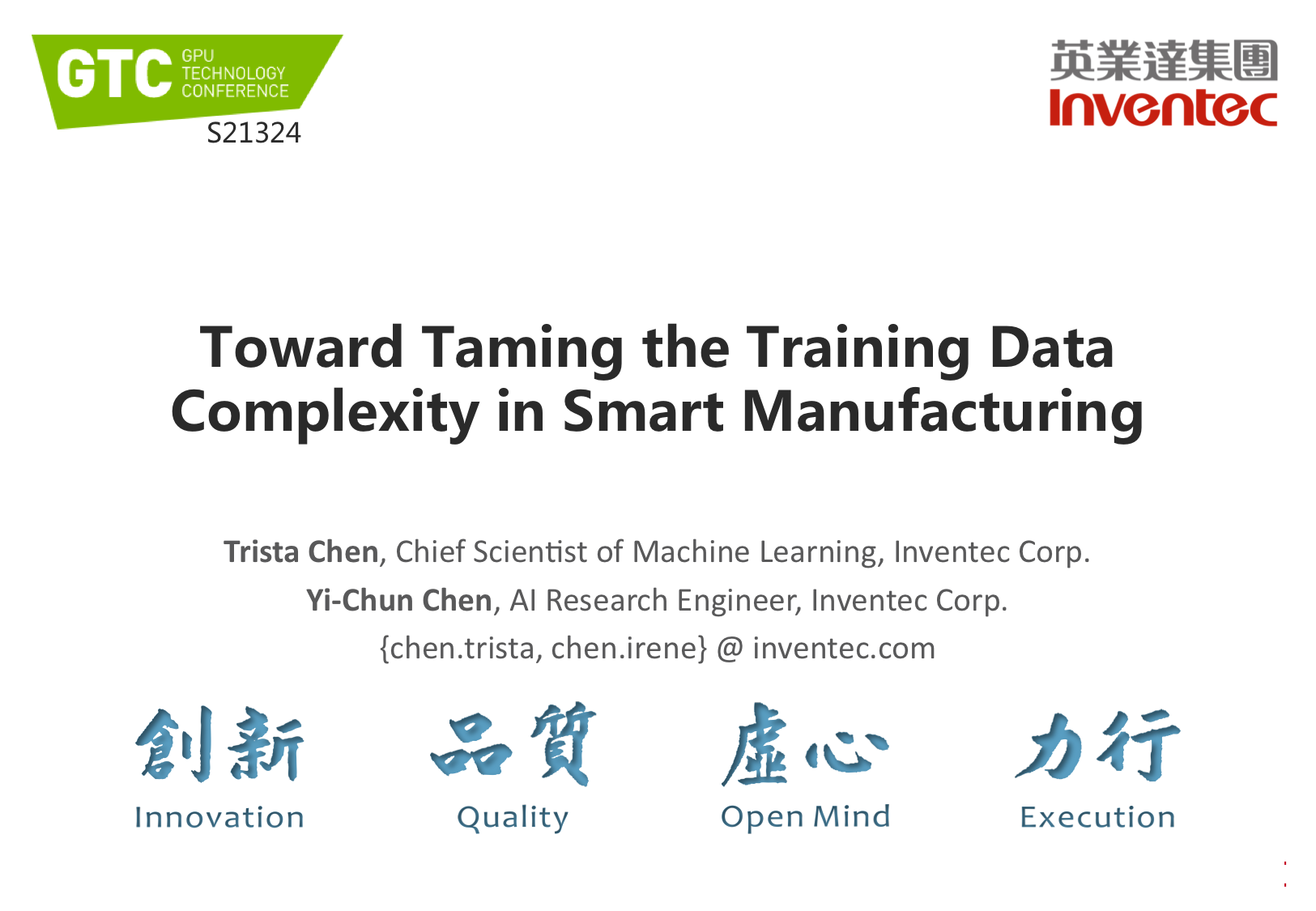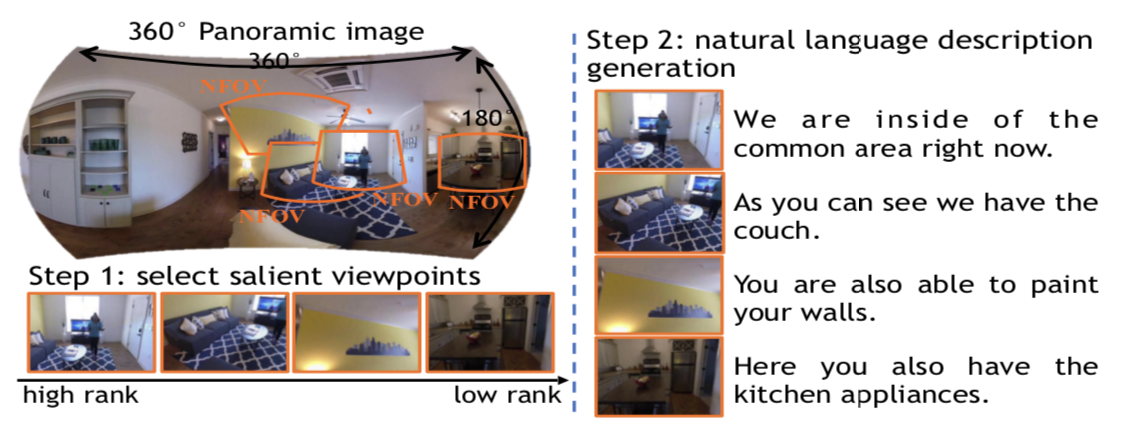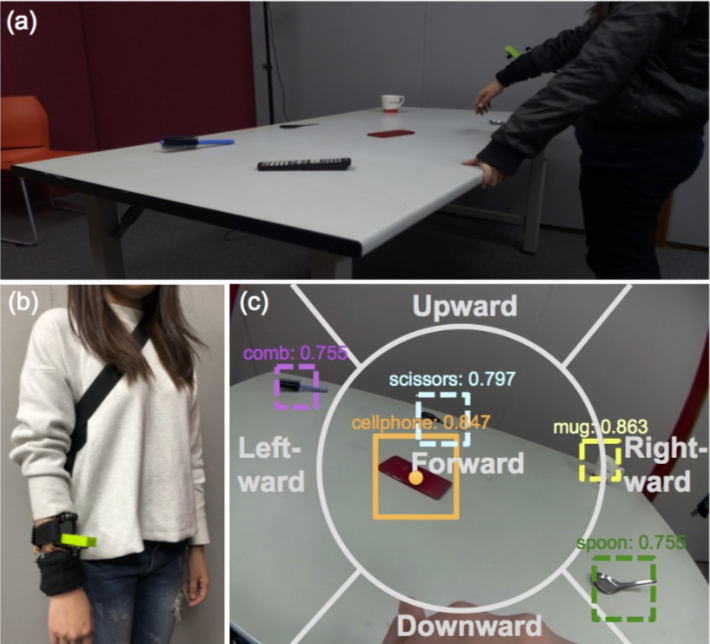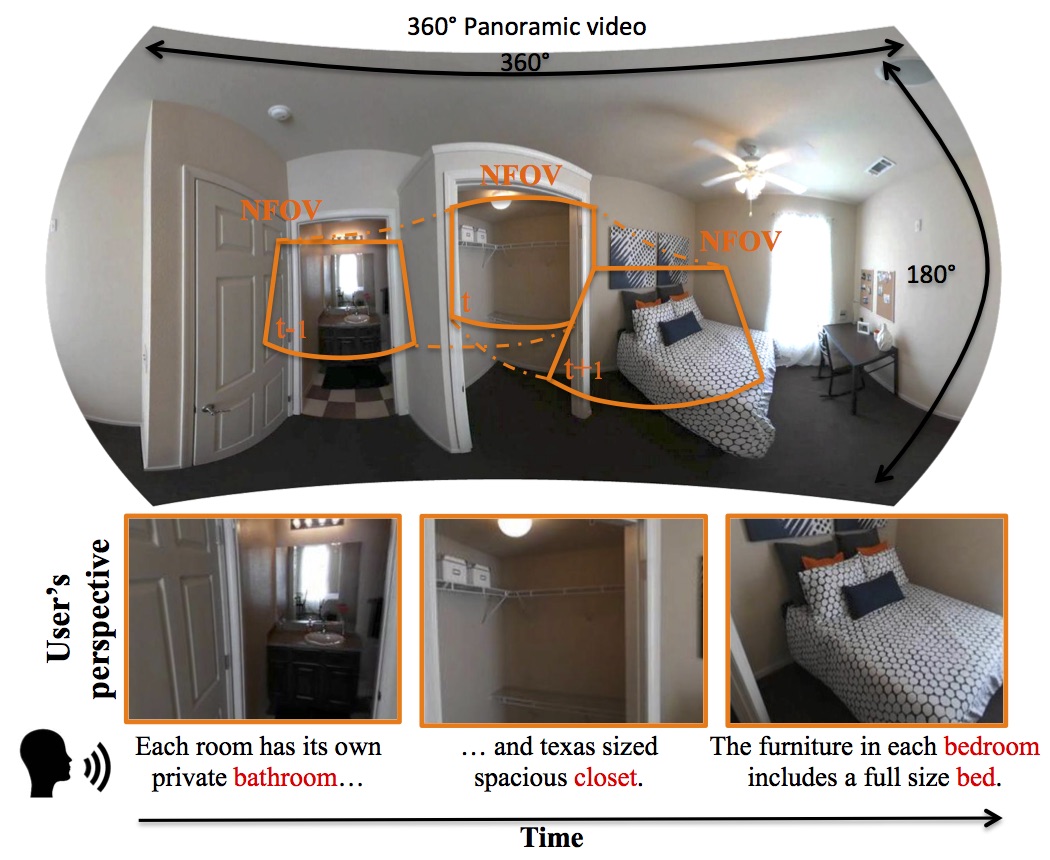I am an incoming student of MSCV (Computer Vision) program at
Carnegie Mellon University.
Currently I am working with Prof.
Kris Kitani.
Previously at Inventec Corporation, I was an AI Research Engineer working with Dr.
Wei-Chao Chen and Dr.
Trista Chen.
Before that, I have developed visual search solutions for smart eCommerce at Viscovery.
My research interests include deep learning and computer vision, especially anomaly detection, image segmentation and object detection and their applications to smart manufacturing.
Also I am fortuante to have worked with Prof.
Min Sun.
I received my B.S. from National Tsing-Hua University. I am actively looking for 2021 Summer Internship to explore more computer vision applications in the industry.











